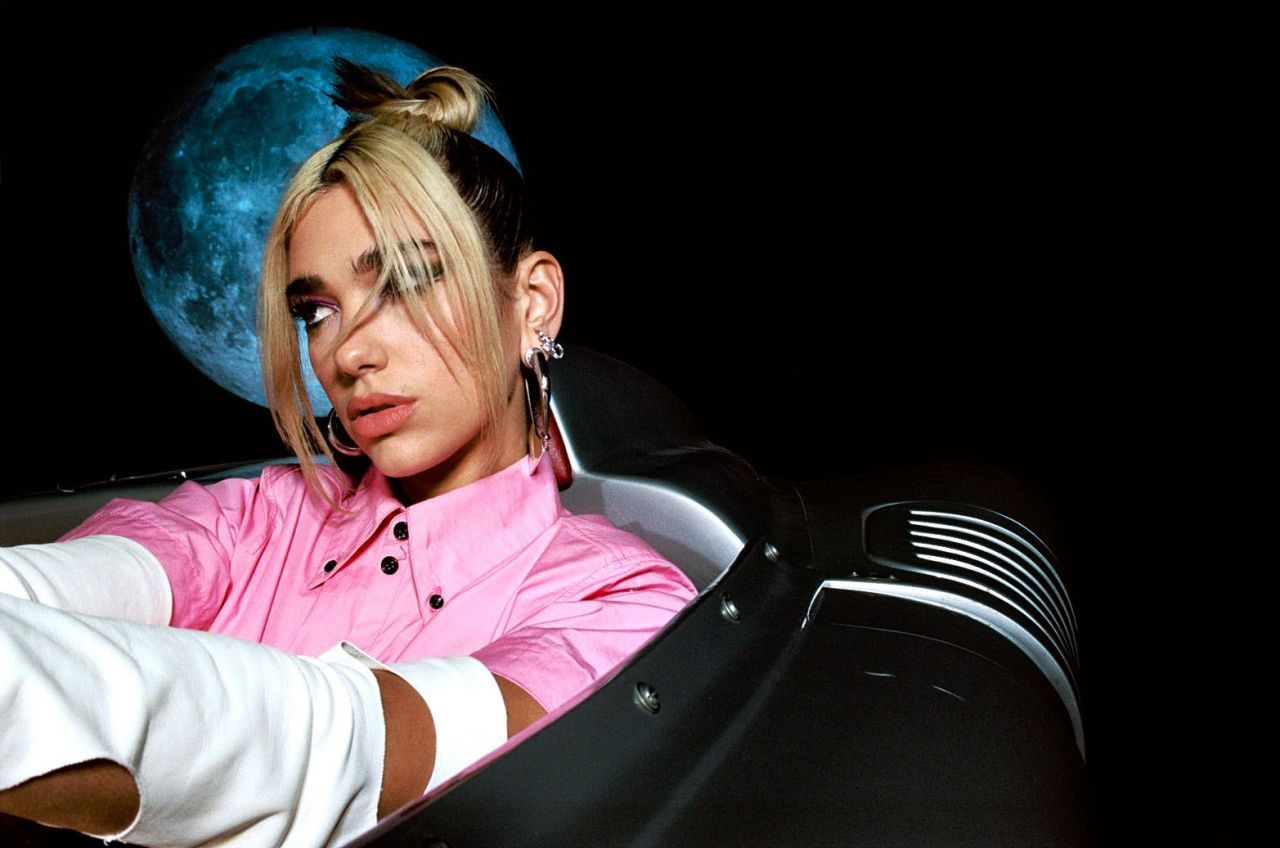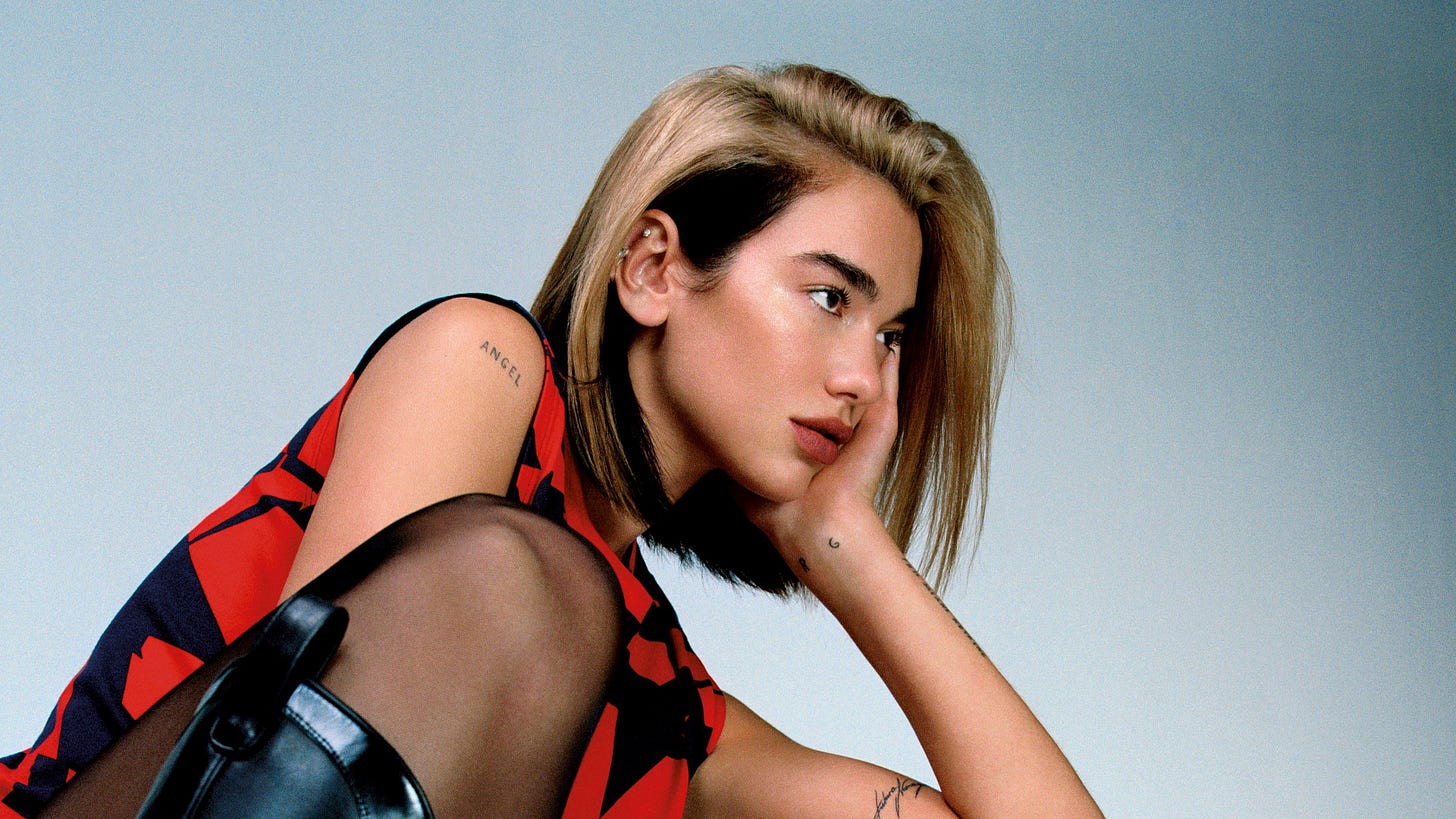Now imagine yourself back in March 2020 - and no, I don't want to revive any bad memories. In the early stages of what would become one of the craziest periods of all our lives, Dua Lipa released her second studio album, Future Nostalgia. What neither you nor she knew back then was that this album would become one of the most iconic of the decade. More than that, it reshaped pop music and revived a sound long thought gone: disco-pop.
Today, I will talk about how it did so, why its timing was perfect, and how it made Dua Lipa a global superstar.
The Pandemic and Its Effect
It’s March 2020, and the world is getting hit by a pandemic. What we had previously only seen in movies suddenly became a reality for all of us. This situation did not just affect our daily lives but also had a massive impact on the music industry. Major artists like Billie Eilish and Taylor Swift had to postpone their global tours. Festivals like Coachella and Glastonbury were cancelled. With widespread restrictions in place, recording studios were closed, halting production and delaying entire album releases. In response, many artists had to adjust their schedules. One of the most notable examples was Lady Gaga, who postponed the release of her album Chromatica by nearly seven weeks.
Yet, music was more important than ever, giving comfort to people and helping them through the hard times of lockdown. Once again, just like in the days of Recession Pop, there was a need to escape reality through music. And I think I speak for many when I say that this escape was provided by albums like Future Nostalgia.
The Album Rollout and Execution
With the pandemic going on, Dua Lipa also had to ask herself the question of whether she should delay Future Nostalgia or not. The album was scheduled to release on April 3, and songs like Physical and Don’t Start Now had already been released as singles, with much success.
Now, unfortunately (or fortunately?), Dua Lipa didn’t have to make this decision herself, as the album was leaked in its entirety two weeks prior.
We can all agree that leaking an album is among the most disgusting and disrespectful things you can do in the music scene. It completely ignores and disrespects the hard work done by artists and their teams and throws their plans apart.
However, maybe in this case - despite all the conflicting feelings - it might have actually helped Dua Lipa. After the leak happened, Dua and her team decided to push the release of the album forward to March 27.
Pushing the album release forward was necessary, but unfortunately also meant a rough first week for Future Nostalgia on the charts. With first-week sales of only 66k and a debut at No. 4 on the Billboard 200 chart, Dua could not land the success she had hoped for. However, while the leak affected its charting success, it did not affect its streaming numbers. Dua Lipa was able to achieve several records within the first week on Spotify, including the most-streamed album by a British female artist in both the UK and US on its first day. The album was also well received by critics, with NME giving the album a rating of 10 and Rolling Stone a rating of 8.
With the pandemic still ongoing, further promotion of the album became a matter of creativity. But luckily, Dua was more than creative, and soon after, she and her team put together Studio 2054; a series of livestreamed concerts hosted by Dua Lipa.
Studio 2054 was not just a simple livestream performance, but a massive effort to create something close to a real-life concert. It included behind-the-scenes footage, costume changes, and full performances. Alongside Dua Lipa, guest appearances by Angèle, Bad Bunny, The Blessed Madonna, Elton John, and more were also part of the show. With an attendance of 5 million people, the show was a huge success, even breaking the record for viewership of a paid livestream.
Studio 2054 was a truly impressive project, both innovative and creative and honestly, one of the coolest things I had seen up to that point.
To further build up hype and keep the era alive, Dua would go on to release two more versions of Future Nostalgia.
The first being Club Future Nostalgia, which essentially was a remix album, featuring remixes of each song by The Blessed Madonna and other collaborators. Now, I can say that remix albums are quite the last thing I'm interested in. But Club Future Nostalgia stands out as one of the only remix albums I enjoy and appreciate. And also, it was a smart move, because it allowed Future Nostalgia to reach new audiences and make its way into clubs and DJ festivals.
A year after the release of the original, Dua Lipa released the Moonlight Edition, which basically was the deluxe version. It featured prominent songs such as Fever, We're Good, the Levitating remix, or Prisoner with Miley Cyrus. And I think just naming those songs is enough to show how good it was. Once again, I'm not the biggest fan of deluxe versions, especially with what's going on recently. But the Moonlight Edition is a perfect example of a great deluxe album, as literally every song was worth releasing.
Breaking Down Future Nostalgia
You cannot talk about the album without mentioning its great visuals and aesthetics. Dua Lipa clearly had a concept in mind and stayed consistent with it. Throughout the whole album cycle, she performed and appeared in outfits and visuals influenced by the 70s and 80s, especially from the disco-pop scene.
We see this throughout the promotional photos, featuring Dua Lipa in “classic” disco clothes, shirts reminiscent of the 80s, and even with a car from that era. The concept is retro, but at the same time, through the music, it’s futuristic and that’s what makes it so appealing. It’s not a remake of older decades, but rather a new version, taking influences and making it Dua’s own style. And the same goes for the music.
In many ways, Future Nostalgia created a little resurgence for disco-pop. With its danceable vibe, it wasn’t a surprise that this album would do well. I would argue it would have been a success no matter when it was released. Yet, releasing it during the pandemic made it iconic because it brought back some lost joy.
Future Nostalgia sounds like it looks. Featuring groovy basslines and lush synths, the 80s-infused pop productions are mixed with an almost carefree, bold, and strong personality by Dua. It’s punchy, catchy, and liberating, it makes you move and dance while bringing hope through its shining production.
The album feels like a combination of decades of pop music, yet it’s Dua at its center, making the show. With such catchy and bright production, many artists could have succeeded here, but only Dua was able to make it her own. Through the bold personality she showed, the vulnerability she admitted, and the resilience and strength she portrayed, these qualities are highlighted multiple times throughout lyrics like “You want a timeless song / I wanna change the game” or the iconic “I know you ain’t used to a female alpha.” Dua shows she isn’t here for fun.
Track-by-Track Review
Future Nostalgia: The title track introduces us to the disco and synth-pop sound of the album in a bold and charismatic way. Declaring herself to be a "female alpha", Dua delivers a catchy, groovy, and forward pop banger.
Don’t Start Now: Released as the first single of the album, it perfectly set the tone back then. The funky vibe of the nu-disco-inspired production, paired with the catchy hook, gives you no other choice than dancing.
Cool: This track is really playful, and with its summer-as-vibe, more lighthearted. Over a nice synth beat, Dua sings about losing your cool when you fall in love.
Physical: Pure pop perfection. A catchy, funky 80's synth production and Dua being as confident as ever. Strong verses are combined with an infectious hook as Dua raises the tension.
Levitating: Let yourself be thrown into a pure disco fever with this one. This is perfected 70's disco pop with modern production, and Dua being the irresistible disco queen here.
Pretty Please: On this more contemporary pop song, Dua takes a slower approach. Nonetheless, she manages to express her feelings and needs, and the funky bass supports that perfectly.
Hallucinate: Once again, I have no choice but to repeat, this one is catchy. It's an arena anthem, one we all can sing along to, and with Dua's amazing vocals and its upbeat production, one of the highlights here.
Love Again: Dua falls in love again, just like I do with this song. The amazing strings here, paired with the disco atmosphere, make this one of my favorite songs of the album.
Good In Bed: A departure from the disco sound, "Good In Bed" is more of a unique piece here. While for some it’s too far away from the album's sound, for me it’s just fine.
Boys Will Be Boys: The more slow-paced track ends the album on a more serious note. Talking about how Dua, and many other women, need to make sure to be home before the sun goes down and keep their keys in their hand in case they get attacked. Soundwise different, it conveys a lot of important emotions.
Why It Works So Well
What makes Future Nostalgia so good is how every detail just falls into place. Dua's persona, the production, the aesthetics, and the influences she takes - they all come together to create a cohesive album.
The sound is nostalgic, yet it's modern and bold. It manages to revive disco-pop in a way long not seen in the mainstream, but it's far from a copy. Each song is modern, forward, and has Dua's fingerprints all over it. It isn't just catchy or sounds good, it feels right for the time it was released.
And talking about timing: the album came exactly when we needed it. We all remember the fear, uncertainty, and isolation during the pandemic. And albums like Future Nostalgia gave us much-needed relief from those feelings.
And there's Dua herself. Throughout this album, she shows unmatched confidence, attitude, and charisma, which help make the album truly hers. She took a risk, she had a vision, and she delivered. And that’s why it works. That’s why it’s perfect.
Loved this kind of music story?
Read Next:










hallucinate is my favorite
The cohesiveness of this era was definitely on point for Dua. Definitely one of the best pop eras of the decade visually! She gave us music to make us dance in hard times, which is needed. Pretty Please, Cool, and Good In Bed were always my favorites from this album. And Levitating is such a classic. I love the verses in that song so much. She ate!